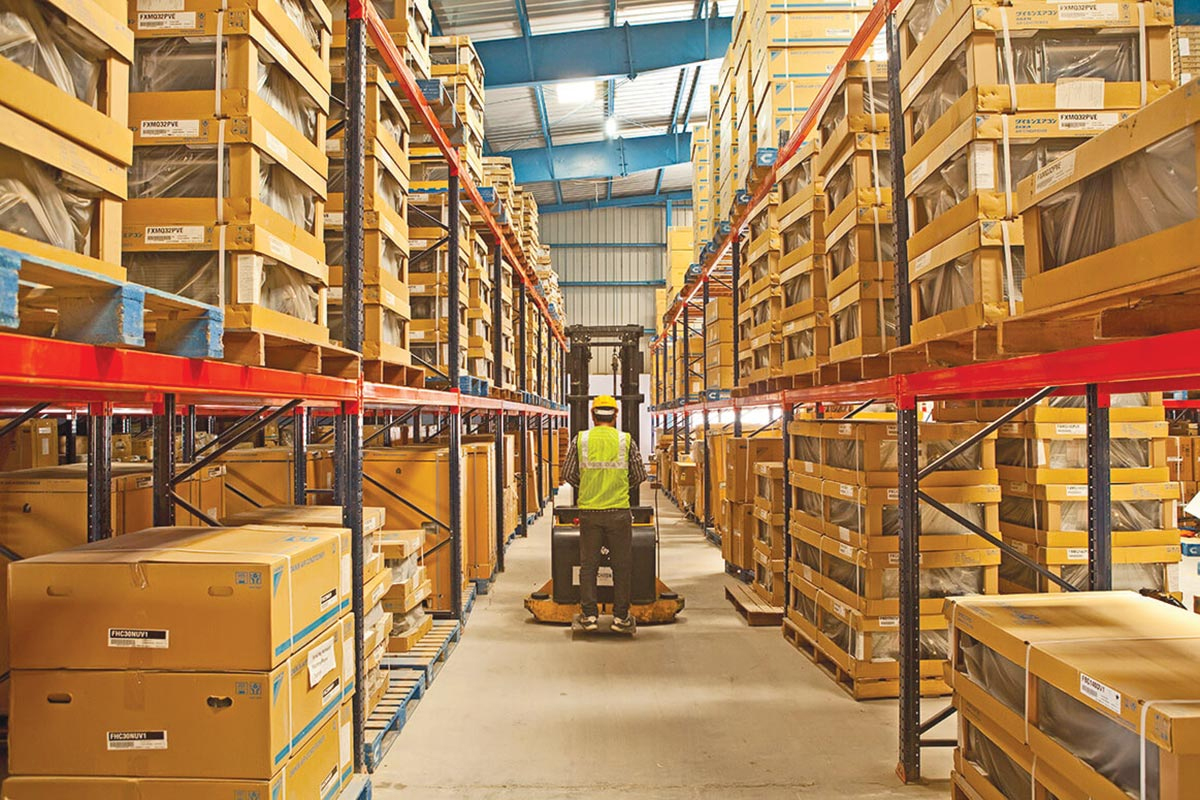Introduction
Two of the essential aspects in the realm of logistics are effective storage and warehousing, where customer satisfaction and on-time delivery are of the utmost vitality. For efficient operations, cost savings, and overall business success, inventory and product management must be done well. In this blog post, we’ll talk about the importance of effective storage and warehousing in the logistics sector and how it helps businesses run more smoothly, provide better customer service, and make more money.
Optimizing Inventory Management
Logistics organizations can streamline their inventory management procedures with the help of effective storage and warehousing. Businesses can maintain a careful check on stock levels, foresee changes in demand, and guarantee that goods will be available when needed by putting advanced tracking and storage systems in place. With this proactive strategy, the danger of stockouts is reduced, excess inventory is avoided, and order fulfillment rates are increased. Logistics companies can maintain ideal inventory levels, cutting holding costs and improving operational efficiency, with the correct storage infrastructure in place.
Streamlining Order Fulfillment
An organized and well-managed warehouse is instrumental ahead of streamlining the perfect order fulfillment process. Employees can identify and pick orders quickly and precisely when things are properly labeled and kept. Order picking efficiency is increased through effective storage systems, such as automated retrieval systems and strategically placed bins. This decreases the time needed to process orders and ensures on-time delivery and paves the way for smooth logistics. This improves customer happiness while simultaneously boosting efficiency and lowering order processing errors, which results in cost savings and a competitive edge.
Ensuring Product Integrity and Safety
2 main duties of storage and warehousing in logistics are the integrity and safety of items. To maintain the quality of the items along the supply chain, adequate storage conditions, including suitable temperature control, humidity management, and appropriate handling practices, are essential. Effective warehousing procedures guard products from harm, spoilage, and contamination with regular inspections, adherence to safety procedures, and appropriate packaging. This not only preserves the logistics company’s reputation but also fosters client confidence and trust.
Enhancing Supply Chain Visibility and Traceability
Efficient storage and warehousing systems contribute to improved visibility and traceability across the supply chain. Logistics service providers can detect and monitor the flow of goods in real-time using cutting-edge technologies like RFID (Radio Frequency Identification) and barcode scanning. This improves supply chain transparency and makes it possible to track inventory accurately, provide accurate order status updates, and manage incoming and outbound logistics effectively. An improved customer experience might result from more visibility because customers can track their shipments and get timely updates.
Conclusion
Efficient storage and warehousing form the backbone of successful logistics operations. By optimizing inventory management, streamlining order fulfillment, ensuring product integrity and safety, and enhancing supply chain visibility, logistics companies can achieve higher operational efficiency, customer satisfaction, and profitability. To realize the full potential of effective storage and warehousing, organizations in the logistics sector must invest in cutting-edge storage infrastructure, sophisticated tracking systems, and well-trained personnel. Adopting these procedures helps firms remain competitive while also enabling them to handle the rising demands of the contemporary logistics market.

